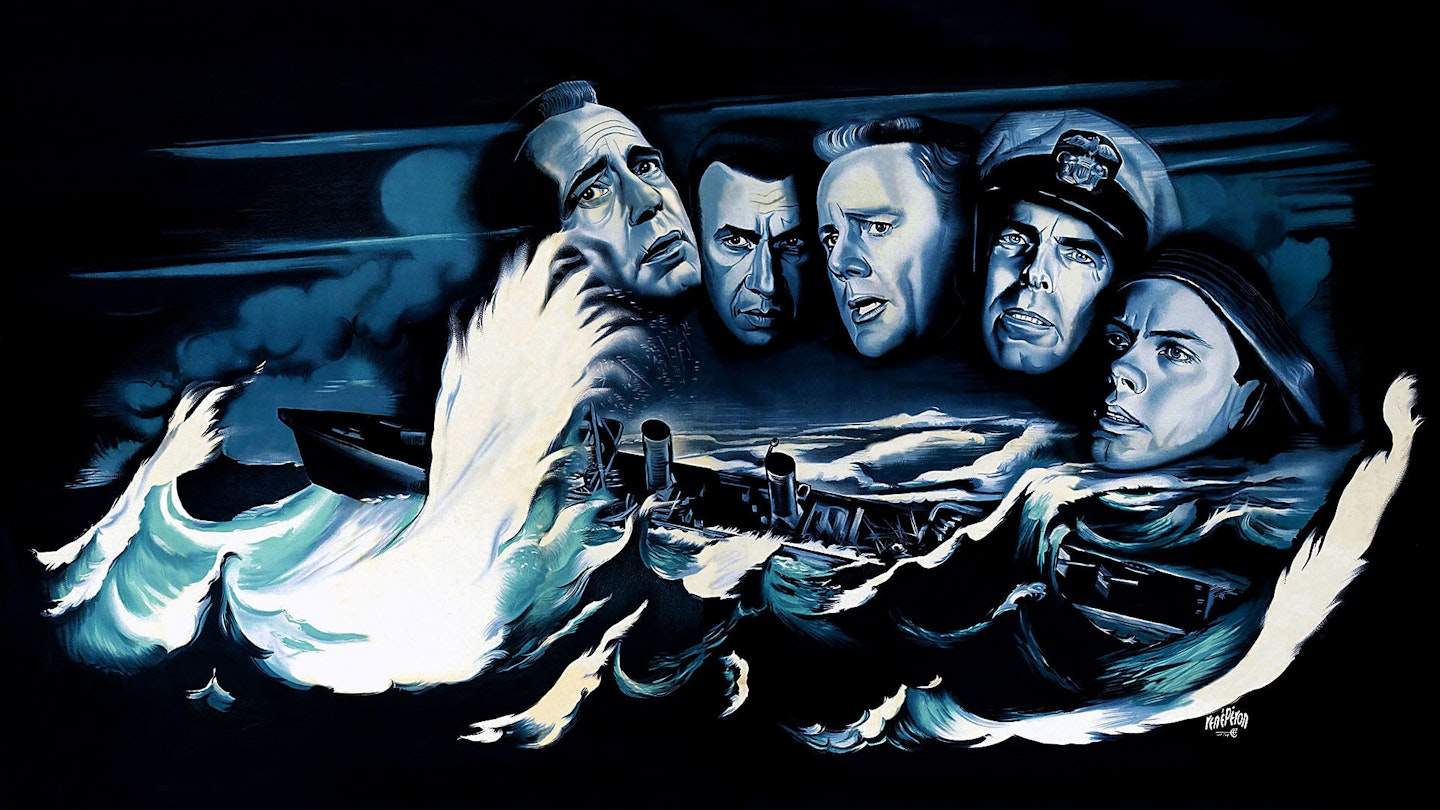Somewhat stodgily directed by Edward Dmytryk, this adaption of Herman Wouk's well‑regarded novel remains a gripping drama, thanks to a crewful of unforgettable performances. Fred MacMurray (always better as a shifty creep than in his usual family man roles) is the psycho‑babbling stirrer who foments the mutiny but tries to cover his ass in court, Van Johnson the conscience‑stricken junior officer who winds up on trial, Jose Ferrer the showy lawyer who comes up trumps at the court martial and Lee Marvin the slobbiest soldier in the US Navy are all spot-on. But the show belongs to Humphrey Bogart in one of his latter‑period, craggy psychopath roles as Captain Queeg, the ball‑bearing rattling maniac who accuses his men of stealing strawberries, cracks under pressure and continually snipes and sneers at everyone on deck.
The meat of the drama comes after the mutiny, in the courtroom finale where Queeg is put on the stand and is prodded into revealing his insanity, as Bogart turns the unstable villain into an almost-sympathetic, tragic figure.
There’s a deadweight romantic subplot between the young, uncharismatic ensign (Robert Francis) and May Wynn (who took her screen name from the Wouk character), which feels like a contractual obligation, and – as with From Here to Eternity, Peyton Place and many other 1950s book-to-film transfers – there’s quite a bit of manoeuvering to appease the censors by balancing the film’s indictment of the US Navy with scenes that show Queeg is a freak rather than typical.
